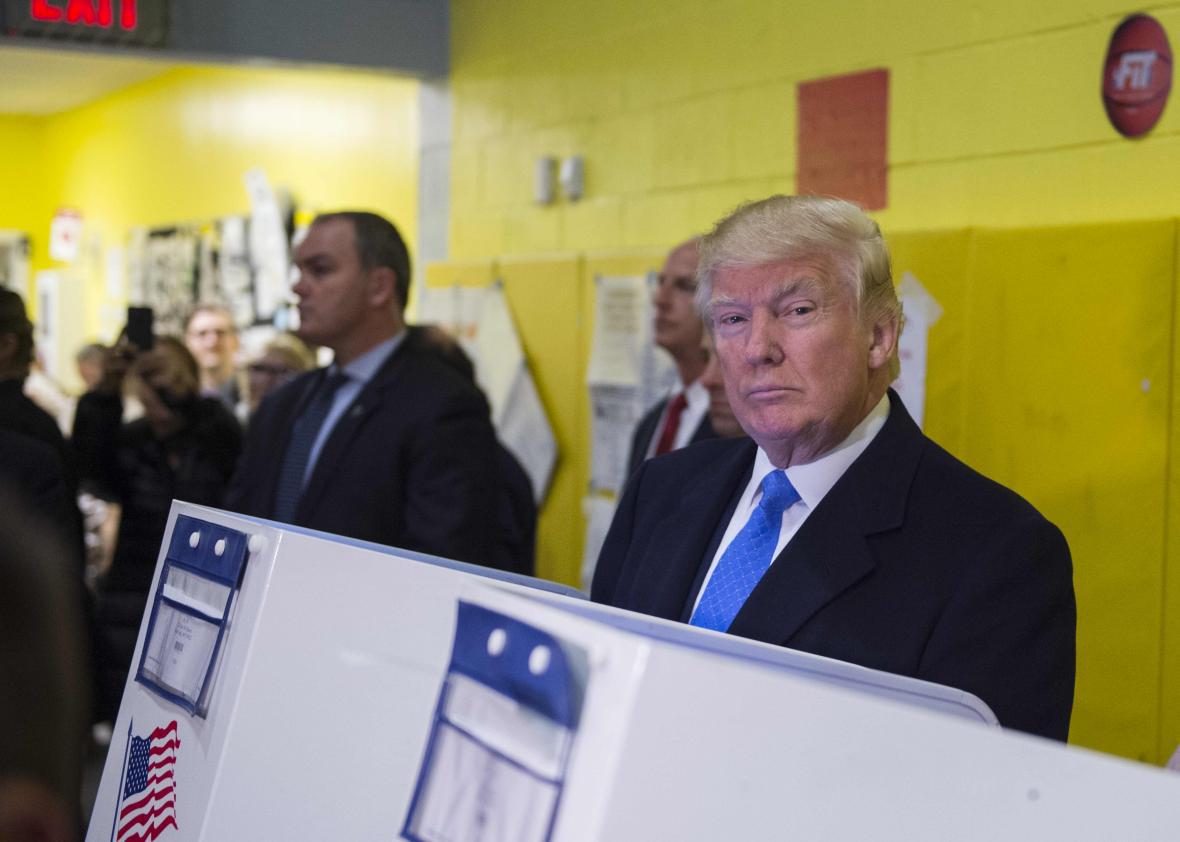“Nothing at all, really.” “We only had one. It hasn’t been confirmed.” “We haven’t received any complaints to our office or any word of suspicious activity, and we would definitely hear it.”
That’s a sampling of what state officials who oversaw voting last month had to say to the New York Times when it asked how many credible reports of fraud they’ve received since the election. According to the paper, the overwhelming consensus from the election boards and secretaries of state across the country can be boiled down: “next to none.” In a total of 26 states (plus the District of Columbia), officials said they knew of zero credible allegations, while officials in another 8 states said they were aware of one, and only one, such claim. The closest thing to an outlier—other than Kansas, which did not respond to the Times—were states that reported a few dozen cases of possible fraud. Tennessee, for instance, counted 40 credible allegations, while Georgia said it had opened 25 inquiries into claims there. Those numbers, however, represent a fraction of a percent of the millions of votes that were cast in both states.
The totals may still change a few ticks as officials wrap up the postelection review process, but there’s no reason to believe the results will change significantly. Of course, there was never much reason to worry about this type of voter fraud in the first place. Academics, researchers, and other experts have been saying for years that voter fraud—whereby someone deliberately casts an illegal ballot—is effectively nonexistent. Here, for instance, is how University of California, Irvine law professor Richard Hasen summed things up in Slate back in October at a time when Donald Trump was warning that voters in “certain areas”(*wink, wink*) would cast multiple ballots for Hillary Clinton:
The truth is, though, that not only does zero evidence exist that this sort of fraud has taken place on any regular basis, but multiple voting simply cannot happen in any practical sense on a scale to influence a presidential election. To vote five, 10, or 15 times one would have to either register five, 10, or 15 times in different jurisdictions or with false names or go five, 10, or 15 times to polling places claiming to be someone else whose name is on the voter rolls, in the hopes that this person has not already voted and you would not get caught. And to do this on a scale for a presidential election, in a place such as Pennsylvania with millions of voters, you would need to pay tens of thousands of people, all without any way of verifying how they voted. What a stupid way to try to steal an election! That’s why in preparing my 2012 book, The Voting Wars, I could not find a single instance anywhere in the U.S. from the 1980s onward where massive impersonation fraud was used to try to steal an election. …
The only recent instance I’m aware of concerning such multiple voting concerned a staunch supporter of Republican Wisconsin Gov. Scott Walker and other Wisconsin Republicans. This man registered and voted about a dozen times in a few elections in multiple jurisdictions. He was caught and literally pleaded insanity, because such a plan is literally insane.
That reality, sadly but unsurprisingly, did not stop our now president-elect from continuing to make his evidence-free claim in the lead up to Election Day, nor did it stop him from doing so again after it once it became clear he had lost the popular vote.
Such claims are about more than just Trump’s fragile ego (though they are about that as well). As my colleague Mark Joseph Stern has explained, Republicans have been peddling the myth of widespread voter fraud for going on two decades now as way to justify stringent voter ID measures and other draconian voting restrictions, the burdens of which fall disproportionately on minorities. And while some establishment Republicans were uncomfortable with just how far from reality Trump was willing to venture during his pre- and post-election fearmongering, his election makes it far more likely that they’ll get the crackdown on suffrage they’ve been clamoring for.
